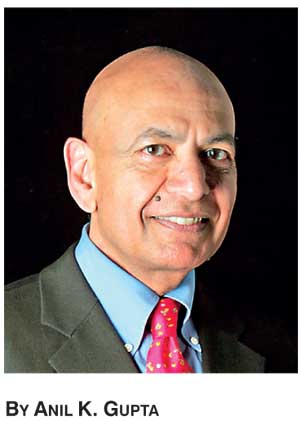Sunday Feb 15, 2026
Sunday Feb 15, 2026
Tuesday, 10 May 2016 00:06 - - {{hitsCtrl.values.hits}}
When any multiproduct firm begins contemplating global expansion, it must first decide whether it should globalise the entire portfolio simultaneously or globalise a subset of product lines first.
 Consider the case of Marriott Corporation. Until the early 1990s, Marriott was largely a domestic company. Its two major lines of business were – lodging and contract services. Within lodging, the four product lines were: full-service hotels and resorts (branded ‘Marriott’), mid-price hotels (branded Courtyard), budget price hotels (branded ‘Fairfield Inn’), and long-term stay hotels (branded ‘Residence Inn’). The contract services sector consisted of three product lines: ‘Marriott Management Services’, ‘Host/Travel Plazas’, and ‘Marriott Senior Living Services’ (retirement communities).
Consider the case of Marriott Corporation. Until the early 1990s, Marriott was largely a domestic company. Its two major lines of business were – lodging and contract services. Within lodging, the four product lines were: full-service hotels and resorts (branded ‘Marriott’), mid-price hotels (branded Courtyard), budget price hotels (branded ‘Fairfield Inn’), and long-term stay hotels (branded ‘Residence Inn’). The contract services sector consisted of three product lines: ‘Marriott Management Services’, ‘Host/Travel Plazas’, and ‘Marriott Senior Living Services’ (retirement communities).
As Marriott embarked on globalisation, it faced the question of which one or more of these product lines should serve as the starting point for its globalisation efforts. How should Marriott address this question?
Global expansion forces companies to develop at least three capabilities: knowledge about foreign markets, skills at managing people in foreign locations, and skills at managing foreign subsidiaries. Without these capabilities, firms are likely to remain strangers in a strange land, with global expansion posing a high risk. Globalising the entire portfolio at once compounds these risks dramatically. Often, it is wiser to choose only one or a small number of product lines as the initial vehicles for globalisation.
The choice of the launch vehicle should be driven by the twin goals of how to ‘maximise the payoffs’ and, at the same time, ‘minimise the risks’ associated with early globalisation. These initial moves represent experiments with high learning potential. It is important that they succeed. Success builds confidence, credibility within the corporation, and last but not least, cash flow to fuel further globalisation.
Take the first factor – maximising payoffs from globalisation. Using the ideas discussed in an earlier segment in this series, the payoffs from globalisation tend to be higher for those product lines which must be managed in a more ‘globally integrated’ manner. For Marriott Corporation, this is clearly the case for full-service lodging, whose primary customers are globe-trotting executives, than they are for retirement communities.
In full-service lodging, a worldwide presence can create significant value by using a centralised reservation system, developing and diffusing globally consistent service concepts, and leveraging a well-known brand on whose high quality and service customers can rely. None of these factors is pivotal for retirement communities, which is much more of a ‘multi-domestic’ business.
Now, consider the second factor – minimising risks. The risks of failure go up exponentially with the need for local adaptation in foreign markets. Higher the required adaptation, the greater the need for product or service features to be developed locally, as opposed to cloning proven and pre-existing concepts and capabilities. Since any new development involves risk, the higher the required adaptation, the greater the risks of failure. For Marriott, as compared with full-service lodging, the retirement community business is a very local business, and hence requires much more local adaptation.
Putting both factors together, full-service lodging emerged as a particularly attractive candidate for early globalisation. Full-service lodging also provided Marriott with a high-return–low-risk laboratory for developing knowledge and skills regarding foreign market entry and managing foreign subsidiaries. This experience positioned Marriott well to globalise its other lines of business later on.
Building on the ideas in this segment, I’d now like you to analyse your own business. Which of the various product lines offers the highest payoffs and lowest risks from early globalisation? Which product line would fall at the other end?
(The writer is the Michael Dingman Chair in Strategy at the Smith Business School, The University of Maryland at College Park, USA. Widely regarded as among the world’s leading experts on strategy and globalisation, he is ranked by Thinkers50 as ‘one of the world’s most influential living management thinkers’, by HotTopics as ‘one of the world’s most influential professors of entrepreneurship’, and by The Economist as a ‘superstar’ for research on emerging economies.
He will deliver a two-day workshop in Colombo with PwC’s Academy for board members, business owners, CEOs and C-Suite level business leaders on Building a Global Enterprise on 21-22 July. Contact: 0117719874.)